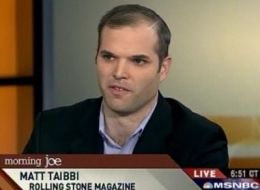Brad DeLong is one of the smartest and most insightful economists around. He is also an irrepressible blogger. In
this piece he explains why intelligent economists (including himself) didn't foresee the financial problems we are now facing.
What we did believe? We believed that the Federal Reserve could handle whatever financial crisis the markets could throw at it. We believed that the Federal Reserve had the policy tools, the risk management skills, and the incentives to firewall the real economy from financial dislocations, and to clean up whatever financial messes were left behind. There were solid reasons for these beliefs: they were called 1987, 1991, 1997, 1998, and 2001. In all of those episodes--some of them involving financial losses much greater than those of the initial subprime mortgage crisis--the Federal Reserve had successfully firewalled the real economy off from financial turmoil. 
Once we had concluded that the Federal Reserve had the tools and the competence to absorb financial shocks, the jaws of the trap snap shut. Leverage then appears to be a positive good rather than a danger. Why? Because if the past two centuries of financial market history prove anything, it is that the markets are woefully short of patent capital willing to bear risks. The financial rich are overwhelmingly the patient risk-bearers. The financial poor are those who sought safety, or who were unwilling or unable to hold their positions and wait for fundamentals to reassert themselves. Leverage then becomes a way of taking the money of the risk-averse of whom the market has too many--for that is what low long-term returns on "safe" portfolios tell us--and putting it too work in the hands of the too-few who will use it to take the long-term risks that the market, historically, has always handsomely rewarded. And financial sophistication becomes a way of concentrating and amplifying the rewards of risk-bearing to call forth additional risk-bearing capital to bolster the numbers of the too-few.
The argument is bullet-proof and correct--as long as Greenspanism is true doctrine, as long as the Federal Reserve does in fact have the policy tools, the risk management skills, and the incentives to firewall the real economy from financial dislocations, and to clean up whatever financial messes were left behind.
Here it is worth stressing that these intellectual commitments are not the result of being hypnotized by the princes of Wall Street. They are the result of disciplined and concentrated analysis of the historical patterns of asset prices and returns. They are the result of confidence in the intellectual power of the discipline of monetary economics as applied through the policy instrumentality of the Federal Reserve. And they are the result of the economists' insight that whenever there is an area of economic activity that pays huge, outsized rewards the odds are that we need more of it done. …
And while these intellectual commitments are certainly fueled by too-close attention to and admiration for central bankers, they are not especially closely tied to contacts with or worship of the princes of Wall Street.
Notice, especially the last line of the next to last paragraph. It is one of the insights of economists that
whenever there is an area of economic activity that pays huge, outsized rewards the odds are that we need more of it done. That means in particular that we need more Wall street speculation.
That may be true. The original source of hedge fund profits was finding inefficiencies in markets, and in doing so making them less inefficient. But what happened is that as the inefficiencies shrank it took more and more leverage to make the same amount of money. Eventually the entire system became both over-leveraged and over-sized in markets that were too small to handle them. So something else has to deal with over leverage in too small markets. That's not a problem with hedge funds doing what they do; it's a problem with how hedge funds (and banks) are regulated.









